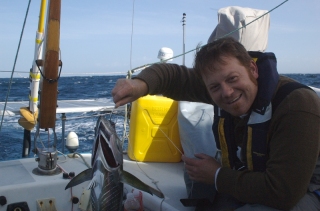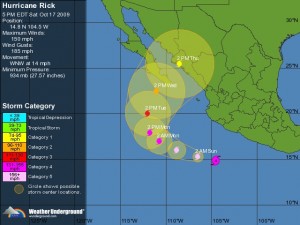How do you divide labor to watch and care for a sailboat that needs your constant attention 24 hours a day while under way? All of the other crew members have great experience with this–especially our Captain who is best friends and has sailed extensively with Commodor Thompkins (arguably one of the best sailors in the world).
So, from the beginning of sailing, ships are operated in watches, and ours is no different. Fortunately, we have four crew members, so a single watch is four hours with 2 crew members on watch.
On the delivery with just the Captain and myself, we had 4 hour watches during daylight. At night, we shortened the watches to 2 hours because you are really tired, it is harder for your body to generate heat to keep you warm because it is cold, and more difficult to detect other ship traffic–so you really must be alert. A two hour shift is much more get a significant amount of sleep. By the time you come below, get out of your fowlies, get wound-down, eat something, brush your teeth, crawl into bed, and fall asleep, you have already burned 35 minutes of your 2 hours.
With the full crew, however, life is much better. Even within your shift, if one of the two is tired, the other can cover for a bit and allow the second sailor to get some rest. And, you have enough to talk over major decisions–course changes, a second sighting on another ship or object, etc. It seems a bit luxurious by comparison.
On this trip, our schedule has been 4 hours day-and-night with two sailors per shift. We agreed to share the shift around dinner time because it gives us the opportunity to talk, make and eat dinner together, and make group decisions.
I have discovered the hard way that if you do not sleep during your day shifts, you are going to be terribly tired at night. One of my night shifts had come around, and I had only had 2 hours of sleep from 4am the previous night until midnight when the sleep shift began. During the sleep shift, there was a major operation–we had to send Nathan up the mast to get a batten that was coming out of the main sail. For a major operation like that, all sailors need to be on-deck . . . no matter what you have going on. With that, two hours of sleep was burned, and then we needed to charge the batteries, so the motor chugged along in my ear for the remaining two hours, and I was able to get all of nothing in the way of sleep.
Let’s just say that the next four hours of my watch were not-so-pleasant on 2 hours of sleep.






